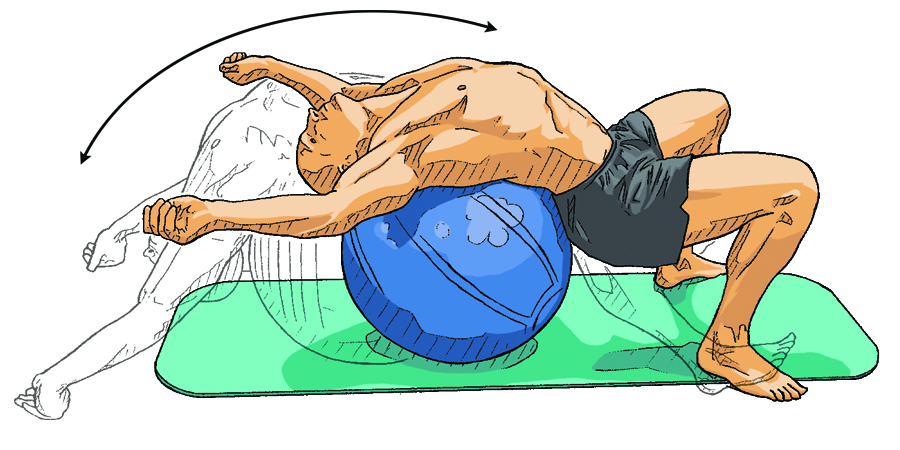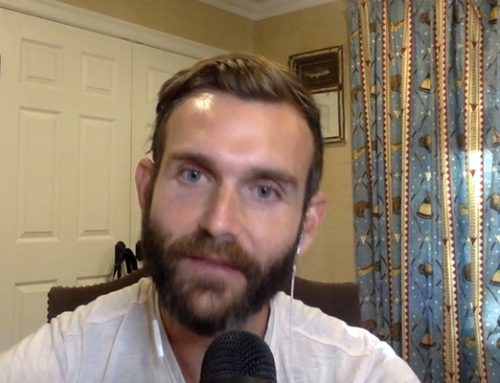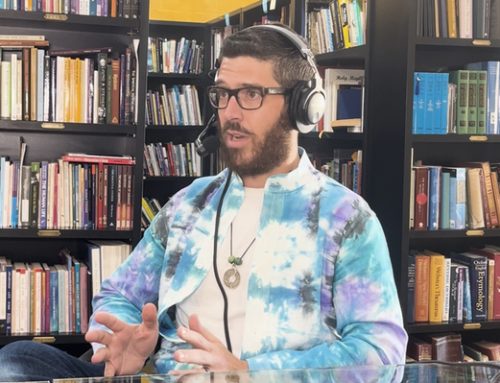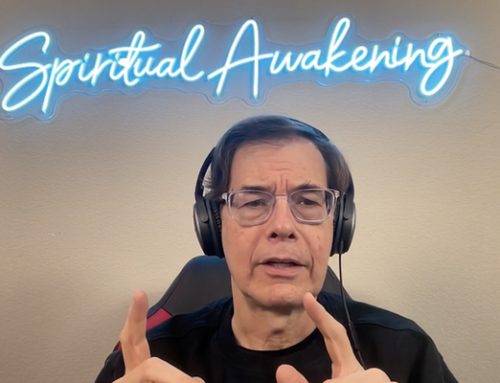Today, I’m sharing some tips on the importance of keeping the flexor chain flexible and supple.
The flexor chain encompasses all of the muscles that flex the body or, in other words, those that bend it forward. In today’s very esthetically-driven society, there is a great deal of pressure for both sexes to maintain that “six-pack” look, or a muscular and sculpted chest (mostly among the guys!). But this drive to look good comes with a price.
Many people regularly experience pain in the neck and shoulders, or get trigger points in between their shoulder blades. Pain in the middle back after sitting for long periods of time or lifting weights is also common. As my regular blog readers know, the body is a very complex kinetic system with linkages from front to back, left to right and diagonally. So, you cannot simply look at or treat the spot that hurts and expect to get lasting results.
Think of your muscles as springs and your spine being in the middle of the springs (muscles) that bend your body forward and pull it backwards. If your chest, abdomen, quads and/or hip flexors get tight, it will tend to pull your chest down, your shoulders forward and your head forward. So, after exercise routines that involve a lot of pushing or crunching or even heavy lunges, you’ll want to stretch these flexors out and mobilize your chest.
In addition to creating pain in all the areas I’ve listed above, a tight flexor chain creates a postural position which blocks the natural flow of chi or life-force energy through your body. This disrupts the flow of energy through chakra systems, which conveys higher vibrational energy into the lower vibrational energy of the body and back out, resulting in emotional energies getting bottled up and unable to be released. People who get stuck in this posture also over-activate the sympathetic nervous system, a position that is common in fight-or-flight scenarios.
In my vlog today I’ll show you six stretches and mobilizations for the flexor chain that you can try. As with any stretches, if you get into the position but do not feel a stretch, then this is a good indication that you are not tight in this area and don’t need to perform it. A good stretch program is designed to balance the body. You only need to stretch areas that are short and tight which is why generalized stretching programs are not very effective, and can be potentially dangerous for athletes. If you think of your body as a bicycle wheel with some spokes that are too tight while others are too loose, if you loosen all of the spokes, you may help the tight areas, but you can over-loosen those areas that were not tight to begin with.
A good rule of thumb: Stretch what is short and tight. Strengthen what is loose and weak.
Video Contents
- 0:00 – Why stretch the flexor chain?
- 4:10 – Foam roller mobilization for the chest, pectorals and ribs
- 5:15 – Pec minor stretch on a Swiss ball
- 7:10 – Pec major stretch on a Swiss ball
- 7:55 – Stretching the abdominals on a Swiss ball
- 10:15 – Swiss ball quadriceps stretch
- 12:44 – Lunge stretch for the psoas

Recommended Resources
For those of you who are interested in more in-depth knowledge about stretching, my book, How To Eat, Move and Be Healthy!, has 20 flexibility assessments and stretches and is a great place to start. If you are looking for more in-depth knowledge and techniques, either The Golf Biomechanic’s Manual or The Tennis Biomechanic’s Manual contain more advanced information on flexibility assessments. Both are especially useful for anyone working with athletes of any sport, not just tennis or golf players.
Stretching Equipment
- 4” x 36” foam roller – Make sure you are using a 4” foam roller and not the larger (and more common) 6” diameter rollers. You can find these at Amazon.com
- Swiss balls – Make sure you are using a high quality burst resistant ball. All sizes from 45-75cm are available from the C.H.E.K Institute shop.
I hope you enjoy my vlog today and I’ll be back later in the week with a new superfood product line that I have recently been introduced to and am loving!
Love and chi,
Paul Chek







